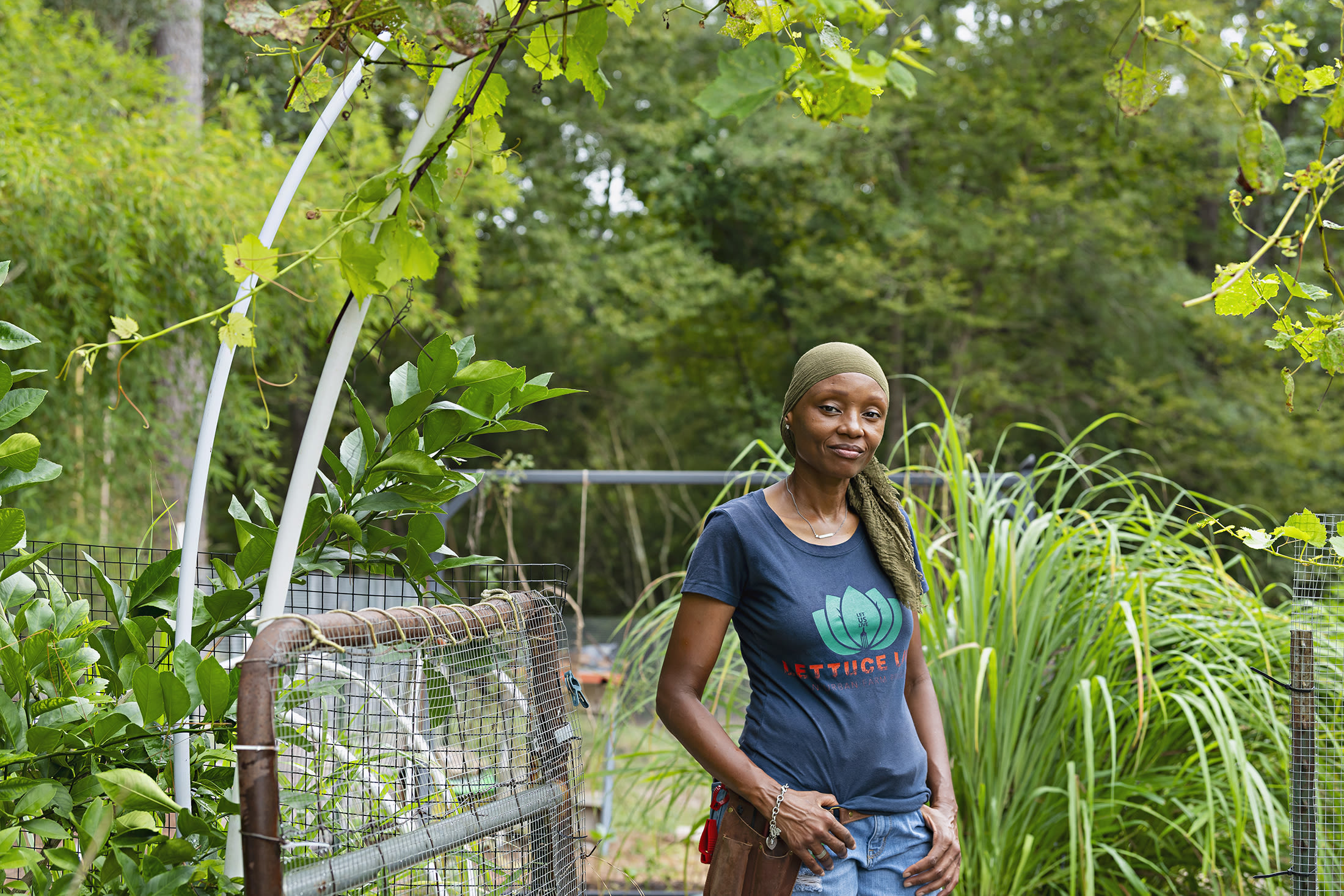When the Trump Burger Came Back to Bite

Image: Brittany Britto Garley
Since Trump Burger first opened in Bellville, Texas, it’s generated headlines and clicks. The burger joint, which now has four locations, serves a straightforward menu of burgers with Trump-stamped buns, fries, and sandwiches accompanied by a gaudy level of memorabilia in homage to President Donald Trump. American flags, MAGA merchandise, occasional Trump impersonators, and life-size posters of the commander in chief have transformed a small-town café into a shrine that serves just okay burgers as props. I know, because I went. (I detailed my uncomfortable visit and published a review while working as an editor at dining publication Eater.)
In recent months, though, the focus has shifted from the restaurant’s mediocre burgers and over-the-top worship to its owners—three immigrants, two of whom are now reportedly facing deportation. The story is no longer just about a controversial restaurant and a demagogue. It has evolved into something more: the dangerous belief that proximity, performance, or even allegiance could shield anyone from oppressive policies. It’s about misplaced faith in power and what happens when the spectacle turns on its creators.
Houstonia first reported on the earliest rendition of Trump Burger in 2016. Israeli-born Eddie Hawa and his wife, Sue, both Muslim immigrants from Jerusalem, purchased Bellville Cafe and renamed it Trump Cafe, hiring a largely African American staff (a recent Houston Chronicle investigation revealed that, among other things, the legal names of Eddie and Sue Hawa are actually Iyad Abuelhawa and Suad Hamedah).
The couple’s mission for Trump Cafe was to be all-American—everything from the food to the T-shirts. They envisioned a place that would be an ode to Trump and his policies, including his plan to build a wall along the US-Mexico border (Abuelhawa compared the anticipated project to the violent barrier separating Jerusalem from the West Bank in Palestine). “I’m supporting him because we need a president like him,” Hamedah said of Trump at the time.

Image: Brittany Britto Garley
The café had no official affiliation with the president, a detail Hamedah seemingly pushed back on. She emphasized that even if Trump threatened to sue over the café’s use of his name, she’d refuse to change it. “We aren’t going anywhere,” she told Houstonia. The restaurant closed for remodeling in 2017 and reopened as Trump Burger a few years later. Since then, outposts have opened in Flatonia, Houston, and Kemah.
In 2025, Trump Burger is far from the American dream. Abuelhawa and Roland Beainy, a Lebanese immigrant whose involvement with Trump Burger is now in question, are reportedly facing deportation. ICE detained Beainy, who was widely reported as having previously run Trump Burger, in May, a detail Hamedah celebrated amid a messy dispute over who truly owns the restaurant. “I’m doing my best to put him in jail,” Hamedah told the Chronicle. “We don’t need these people in our country like this.” (Beainy, who was released on bond in June, has an immigration hearing in November, according to court records).
Then, in an unexpected turn of events, Hamedah’s husband and Trump co-owner Abuelhawa was also detained by ICE in June. The Chronicle reports that he had an order calling for his deportation as early as September 2009, roughly seven years prior to opening Trump Cafe.
And so, the painful irony writes itself: Immigrants, whose legal status is now in question, built a tribute to a president who has promised deportations and publicly demeaned migrants like them. It also raises some uncomfortable questions. If Abuelhawa and Beainy are indeed undocumented, how could they overlook the Trump administration policies that put them at risk? Maybe Trump’s dehumanizing rhetoric—calling immigrants “animals,” “not human”—didn’t affect them. Perhaps they believed that hiding in plain sight, with grandiose praise, could shield them. Or worse: Did they consider themselves an exception?
The idea of US immigrants supporting Trump isn’t unique. Across the country, many people have supported Trump, some for financial or security reasons, even as his policies have endangered their communities and his words have portrayed them as national threats rather than contributors. In some ways, the tides are turning. Social media has been rife with details of families who previously supported Trump, left heartbroken after a loved one is detained. Recent polls have shown that many Latino voters regret voting for Trump in 2024 after witnessing mass deportations and the administration’s intent to end temporary legal status for over half a million immigrants who arrived during the Biden administration. Some Arab and Muslim citizens around the country have had similar voter’s remorse.
The great poet Maya Angelou once said, “When someone shows you who they are, believe them.” Trump has repeatedly shown us who he is and what he stands for through his words and policies. Still, many of us have resisted confronting these truths. When will we believe him?
The Trump Burger deportation saga makes the point plain, and the lesson isn’t just for Abuelhawa and Beainy, or even immigrants. It’s for all of us. No one is an exception. Harmful policies don’t stop at the border of belief.
Eventually, they come home.




